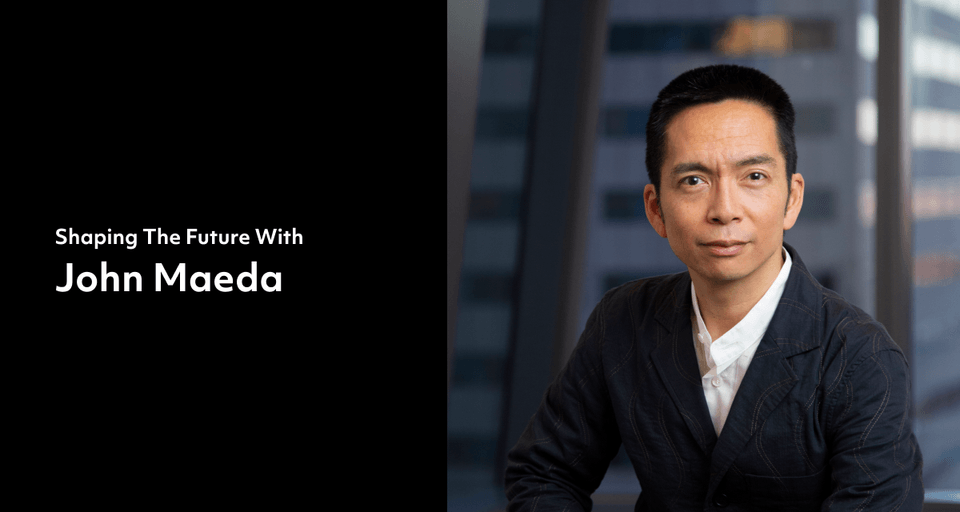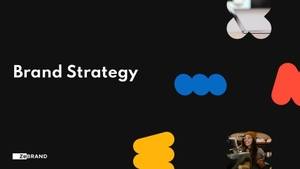An Interview with Dr. John Maeda

American technologist and product experience leader with a passion for digital transformation, computational design, and #ESG.
- How would you describe yourself in one word?
- What is the most rewarding part of your role?
- What were some particular difficulties you faced in the industry?
- What has motivated your innovative activities?
- Who inspires you?
- What does success mean to you?
- What’s the best piece of advice you’ve ever been given?
- How are you connected with ZeBrand?
- What aspects of ZeBrand’s service do you think can help others?
- How do you envision the future of tech in the next 10 years?
- What is your vision?
- What advice do you have for those who have their own vision?
- For SXSW, you publish a CX report every year, what should we keep an eye out for this year?
- What are you looking forward to at SXSW this year?
In this interview, we speak with Dr. John Maeda, a world-renowned design and technology visionary, about what inspires him and what to anticipate in the future.
How would you describe yourself in one word?
Curious.
What is the most rewarding part of your role?
Connecting emerging technologies to meaningful use cases for other human beings. Sometimes that includes myself (smile).
What were some particular difficulties you faced in the industry?
I've had the fortune of having gone across many industries, and if I were to think of the one common thread it is the challenge of managing change in response to events outside the control of any organization's own doings. For that reason, I subscribe to General Eric Shinseki's mantra of, "If you don't like change, you're going to like irrelevance even less," as a way to keep focused on the reason why we all need to change — it is to survive.
What has motivated your innovative activities?
I love to learn. And the only way to learn is to tackle new challenges. I'm told that one day I'll be too old to take on something totally new. I'd like to see how far I can get before I die.
Who inspires you?
Many of the people who originally inspired me are now dead. That's the problem with getting older -- all your mentors and idols tend to vanish and disappear. So I've switched to being inspired by younger people because they're less likely to die before me
What does success mean to you?
Success means surviving a challenge, and then moving on to the next challenge with even more energy.
What’s the best piece of advice you’ve ever been given?
To compete against the world, and to not just compete against the microworld around you. I received that advice from my late mentor Whitman Richards who is one of the founders of the field of Cognitive Sciences. There's a story that famed automotive designer J Mays would tell his team members at Ford that's kept this perspective with me: That within the Ford design studio, his team of designers might think that their competition is their colleagues sitting across from them. But Mays told them to make no mistake: that the competition isn't their colleagues, but instead it was the designers around the world working *outside* of the Ford company. Their competition was Toyota, Nissan, etc — and to keep their focus on the world.
How are you connected with ZeBrand?
Back when I ran the Rhode Island School of Design, I was able to start an innovation program together with the executive leadership of Morisawa Co. Their vision was to send a few Morisawa employees to master "design thinking" at RISD, which I think of as the Amazon rain forest of creativity (smile). One of the people Morisawa sent is the CEO of ZeBrand, Ryo. I recall Ryo leaving a gigantic impression on everyone that he met at the time — it's his electric energy and curiosity that stood out for me back then. I'm glad to see that his magic continues to evolve and thrive today with ZeBrand.
What aspects of ZeBrand’s service do you think can help others?
I think ZeBrand's ability to make it easier for SMBs to get moving quickly is a plus. Anything that saves time is a good thing — incidentally that's the 3rd Law of Simplicity from my original list. I'm not referring to just the savings in time you get from a computational backend, and more about the savings in time that a business owner has in *worrying* about the quality of their brand identity on a daily basis.
How do you envision the future of tech in the next 10 years?
Design is already playing a vital role in how technology is evolving because of its human-centricity. Technology will generally always touch another human, and it's at those moments of interfacing and connecting with people where design plays a vital role.
What is your vision?
In my early years, I always felt that it is a good idea to be a "humanist technologist" that can change the future through what they make with their own hands. That technically is not a "vision" -- but it's how I've lived my life to its fullest so far.
What advice do you have for those who have their own vision?
Go and find one! And don't expect it to get figured out in a day or a month. It may take many years. And that's okay.
For SXSW, you publish a CX report every year, what should we keep an eye out for this year?
This year I've switched to concentrating on Resilience Tech as the topic. Technologies for achieving greater personal, enterprise, and community resilience have been steadily on the rise due to macroscopic shifts in climate change, societal disruptions, and digital transformation. In the inaugural #ResilienceTech Report, I'll be highlighting the growing business ecosystem being built by a new breed of technologists around the world who intend to bring greater resilience to individuals, organizations, and entire countries.
What are you looking forward to at SXSW this year?
Seeing it happen IRL again! My fingers are crossed that it'll work out that way. Good luck to CEO Ryo with his biiiiiiig pitch! Gambare, Ryo-san!


